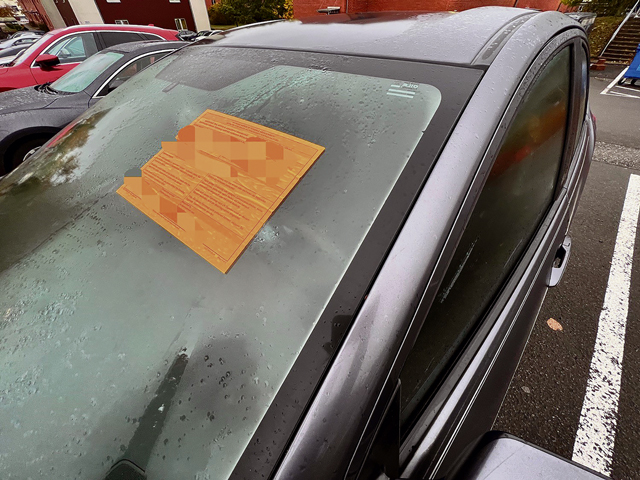
Leaving Germany often involves returning with a bag full of souvenirs from an extensive tour, but some travelers unwittingly leave behind two-ton mementos in the form of abandoned cars, trucks, and motorcycles.
Abandoned vehicles are a cause for concern on U.S. Army Garrison Rheinland-Pfalz and on overseas garrisons across the region. The garrison, however, has recourse. An innovative policy — championed by the garrison’s Directorates of Emergency Services and Family Morale, Welfare and Recreation — pursues the removal of abandoned privately owned cars, trucks, motorcycles, and other vehicles left behind by careless owners and turns them into cash for DFMWR Soldier programs.
The end state isn’t to line MWR’s coffers. Rather, said Terry Dunlap, DES deputy director, the more important goal is to help assist registered vehicle owners before a car is towed away and their losing unit is charged a fee.
“Education about registering and de-registering vehicles is a huge component in this process,” Dunlap said. “If folks can understand the process to sell or turn-in a vehicle, it helps keep abandoned vehicles out of parking lots, and avoids any potential legal issues.”
Defining abandoned vehicles as, “Vehicles that have been stationary for an extended period (except vehicles in authorized deployment holding lots) and vehicles missing license plates or other evidence of ownership,” the policy is supported by United States Code and Army regulations.
The policy applies to all vehicles registered through the U.S. Army in Europe and Africa registration system. In cases where contractors and local nationals abandoned vehicles, DES would contact the Polizei, who would dispose of the vehicle.
DES projects as many as 200 vehicles are abandoned on the garrison’s 29 Germany-based sites every year, according to Staff Sgt. Brantley Bub, the NCO responsible for the abandoned vehicles program.
“There are repercussions for the person who left the vehicle behind,” Bub said, noting that vehicle abandonment is punishable under the Uniform Code of Military Justice and may serve as the basis for adverse administrative action. “Abandoning cars is also a violation of German law.”
It’s DES’s job to determine if a vehicle gets towed. If so, DES first attaches a warning to the owner’s vehicle saying the car “will be towed to a specified holding lot if not moved in 24 hours,” according to the policy. Dunlap added that owning an unregistered vehicle is a violation of Army in Europe Regulation 190-1.
“Within that process, we are trying to give the registered owner every opportunity to claim the vehicle and do what’s right,” Bub said. “We want to help the vehicle owner but sometimes, they have PCSed or moved on.”
When the owner doesn’t move it, and all measures have been exhausted, a military policeman inventories and photographs the vehicle, and then calls MWR to tow it away. The garrison’s auto hobby shops at Pulaski Barracks and Baumholder Military Community provide the towing services. MWR tows vehicles to impound lots on Rhine Ordnance Barracks for Kaiserslautern and Smith Barracks in Baumholder. The cost of towing (as of the writing of the policy) is $160 in Baumholder and Kaiserslautern, and $200 for Army sites outside of Kaiserslautern like Germersheim Army Depot, and the Coleman Work Site.
One of the big questions asked about hauling off abandoned cars is: who pays for it? According to the policy, “… funding for the cost of disposing an unclaimed POV will be provided by the operating funds of the unit to which the owner is or was assigned.”
In short, if a Soldier splits and abandons a car, his former unit gets a bill. Units will pay the bill via military interdepartmental purchase request or fund a direct-charge agreement to cover disposal costs. In return, any money earned through the process goes back into DFMWR programs benefitting Soldiers and Families, according to the policy.
Dunlap said liked the idea of the policy helping fuel MWR programs, but said he preferred registered vehicle owners understand the process to take care of their vehicles during their German tour, so they are not left behind as abandoned souvenirs.
“It’s an innovative effort and one that not only helps clean up the garrison, but gives money back to our FMWR team, which does amazing things with those funds for our Soldiers, Civilians and Family Members,” Dunlap said. “That said, we’d rather have the owner claim the vehicle and take responsibility along the way.”


